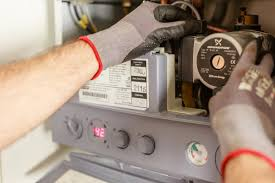Buying a new-build property can be very appealing. Not only is everything brand new but also, in many cases, you can select your own fixtures and fittings from the developer’s suppliers, adding your personal touch to your new home before you even move in. You will also have peace of mind knowing that everything is in good working order, has all the required safety certificates and guarantees, and any snagging will be sorted; however, there are still a few things to be aware of.

Buying off-plan
As new builds often come onto the market before they are completed, you are in effect buying a home before you have seen it. You also run the risk of the completion date being delayed, especially in the current climate. Builders have been struggling to get the supplies they need and have been experiencing long delays for materials; however, recent news reports indicate that the bottlenecks appear to be easing and the construction industry is facing a much more positive outlook.
Finance
New-builds are popular. Once you reserve your home, it is likely that you will be required to exchange contracts within four weeks. This means you will need to have your financing in place. Being prepared is key if you don’t want to lose out.

Selling
If you are also selling a property, be aware that your buyers might not want to wait for your new-build to be completed. The best way around this is to either get their agreement to wait in advance or make the decision to rent a property while you wait rather than risk losing your buyer.
If you are buying in the Hemel Hempstead area, use conveyancing solicitors Hemel Hempstead to deal with the legalities.
Legalities
Buying a new-build is often not as straightforward as it seems; for example, the legalities and paperwork can be extensive. There are often additional checks required, including the infrastructure, planning requirements, access, public roads and highways, and parking. Companies such as Sam Conveyancing can help you with the legalities and to navigate the systems and procedures.
Once the new property is ready, you will usually have 14 days to complete. You will need to be ready to move quickly, which includes hiring a removal company or a van, informing your mortgage company, and ensuring your conveyancer can work within the timeframe.





